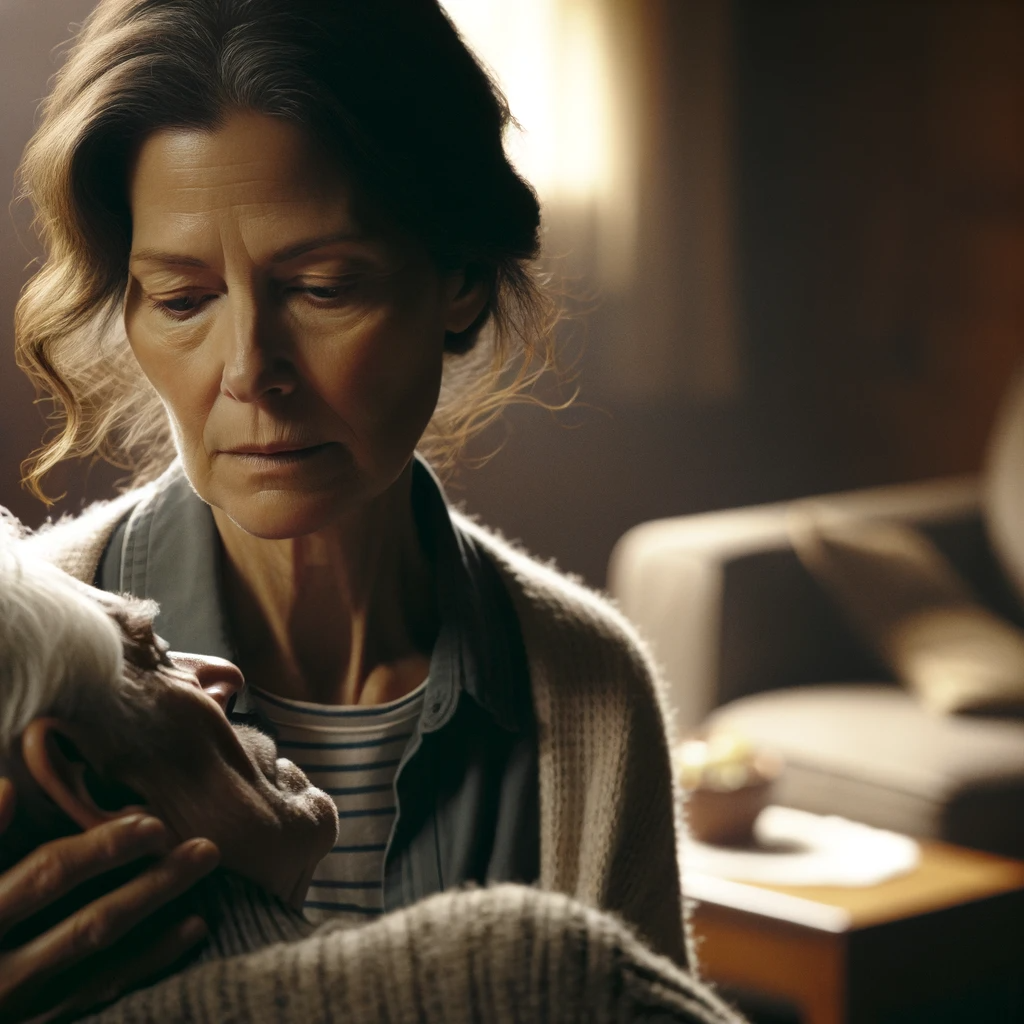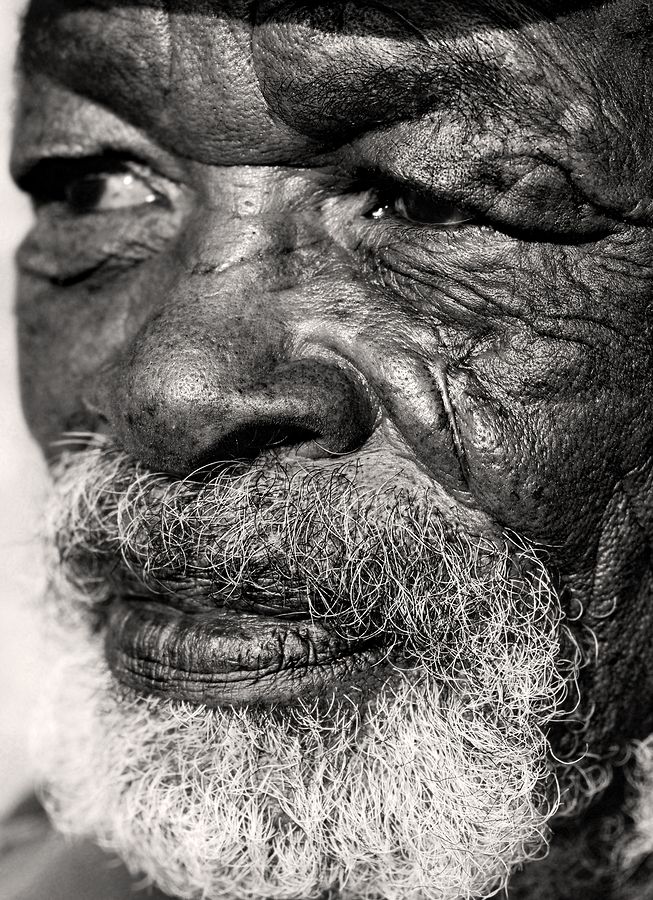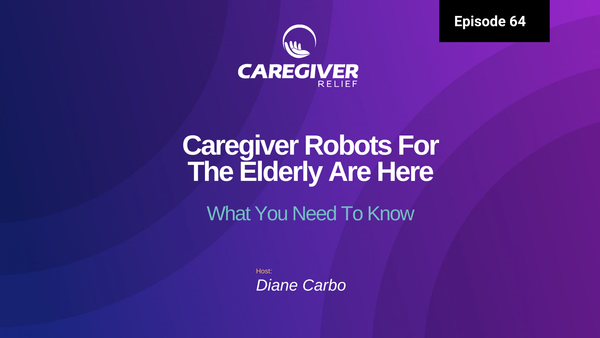Falling Through the Cracks: The Hidden Agony of America's Family Caregivers
Family caregivers face immense challenges. Read their stories and join the Caregiver Relief Petition to support those who provide selfless care. Together, we can make a change.

In the quiet corners of American homes, a crisis is unfolding, one that remains largely invisible to the public eye. It's a crisis that doesn't make headlines, and yet it's tearing at the fabric of families across the nation. This is the story of family caregivers, the unsung heroes who bear the weight of their loved ones' well-being on their shoulders.
The Relentless Struggle for Home Care
In the heartland of America, Jane's life revolves around caring for her aging mother, Sarah. At 78, Sarah is in the grip of Alzheimer's disease, and every day is a relentless battle for Jane. Despite her dedication, Jane finds herself trapped in a never-ending cycle of caregiving. She's watched her mother's savings dwindle, unable to afford the professional home care services she desperately needs. The result? Jane has become both caregiver and breadwinner, juggling a part-time job with the ceaseless demands of caregiving.
Jane's story is not unique. In fact, it's emblematic of a crisis that is silently sweeping through the nation. As the population ages, more and more Americans are becoming family caregivers, responsible for the well-being of their elderly parents, spouses, or friends. The burden is immense, the sacrifices immeasurable.
The Broken Promise of Medicare Advantage Plans
In a different corner of the country, Mark faces a daunting reality. His 80-year-old father, David, requires rehabilitation in a skilled care unit after a fall. At the present time, David needs 24/7 care to meet his needs. The doctors explained to Mark, that with some rehab, his father should be able to return home. They anticipated that David would require 90 days of skilled care to get him to a point to return home. Traditional Medicare with a supplement covers 90 days in a skilled facility. Then reality hit. The Medicare Advantage plan they purchased seemed like a lifeline, promising to cover the costs. But the fine print told a different story. Mark was shocked to learn that the daily cost of care under the plan amounted to a staggering $250 a day! This is the cost sharing that occurs with the Medicare Advantage plans. With limited resources, Mark found himself in an agonizing dilemma—watch his father suffer or plunge deeper into financial distress.
This is the stark truth faced by countless caregivers like Mark. Medicare Advantage plans, touted as a solution, often fall short, leaving families grappling with the crushing financial burden of care. It's a bitter pill to swallow when caregivers are left to choose between their loved one's well-being and financial stability.

Unseen Heroes: The Ex-Spouse Turned Caregiver
In a tale of unexpected responsibility, Susan, long-divorced from her ex-husband Robert, found herself thrust into a challenging role. Robert, in the throes of mid-stage dementia, appeared at her doorstep, homeless and vulnerable. With no one else to turn to, Susan couldn't bear to see him suffer. She welcomed him in, becoming his caregiver.
Robert's dementia had robbed him of the ability to care for himself, leaving Susan as his lifeline. Despite the complexity of their past, she chose compassion over indifference. But compassion alone cannot erase the financial strain Susan endures. Her own resources stretched thin, she faces the relentless demands of caregiving, caring for a man whose memories are slipping away. The stress and burden of providing care is causing Susan to face her own serious health issues.
Unfulfilled Promises: The Painful Wait for VA Aid and Attendance
Kim, a loving daughter and a dedicated business owner, found herself facing an unexpected and daunting challenge. She lived 45 minutes away from her aging parents' home and was managing her own business, a responsibility that demanded daily attention. Life took an unexpected turn when Kim's parents, who had been married for over 50 years, both began to face serious health issues. Her mother was diagnosed with Parkinson's disease, and her father was grappling with dementia.
The pivotal moment arrived one fateful day when Kim's mother had a fall in the bathroom. It was the day Kim transitioned from being her father's devoted caregiver to taking on the responsibility of caring for both her parents. The reality of caregiving, with all its emotional and logistical challenges, was a burden Kim was not prepared for.
Kim's parents had lived modestly and had diligently saved for their retirement years. However, as their health deteriorated, it became apparent that their financial resources would be insufficient to cover the increasing costs of care. Kim saw a glimmer of hope in the form of the VA's Aid and Attendance program. She believed that this program would provide the necessary financial support to keep her parents at home, where they wished to be, until the end of their lives.
With determination, Kim hired caregivers to assist her in providing the best possible care for her parents. However, as time passed, she found herself dipping into her own savings to cover the mounting expenses. Kim diligently applied for the VA program, eagerly awaiting approval. But, as is often the case, the bureaucratic complexities and loopholes in the government system began to strangle the process.
There were frustrating delays, including an instance where Kim was informed that the documents she had submitted had mysteriously vanished, and she was asked to start the application process anew.
Two long years later, after depleting her own savings and facing immense emotional and financial strain, Kim's parents passed away. Heartbreakingly, she never received approval for the VA program she had hoped would offer respite and financial relief. This tragic tale is all too familiar, as countless veterans and their dedicated family caregivers are left waiting in vain for the support they so desperately need.
Our veterans selflessly sacrificed their youth to defend our nation and preserve our freedom. It's disheartening that the very government they served often falls short when it comes to repaying them for their sacrifices.
The Heartbreaking Cost of Inadequate Care
Jennifer's story is a stark reminder of the profound sacrifices family caregivers make daily. For over a decade, she cared for her father, who battled a slow-progressing form of dementia. To make ends meet, Jennifer took a part-time job as a school bus driver, hoping to secure a brighter future. Fate had other plans.
A car accident left Jennifer with a head injury, forcing her to put her job on hold. She continued to care for her father without pay, prioritizing his needs above her own well-being. At 45, she found herself living below the poverty line, struggling to make ends meet. Instead of support, Jennifer faced accusations of financial abuse from uninvolved family members. The stress and judgment took a toll, both physically and emotionally.
Neglect in the Midst of Luxury
In a high-end assisted living facility, Barbara's story unfolds, revealing a troubling truth. Her 94-year-old husband, battling dementia, has resided in the memory care unit for over four years. Barbara, at 88, visits him faithfully for six hours every day. She pays a premium for his care, expecting a level of service that matches the cost.
However, Barbara's concerns fall on deaf ears. She's alarmed by her husband's growing risk of falls and has requested chair or bed alarms to alert the staff. To her shock, she's informed that such devices are against the facility's policy. In assisted living, the focus is on a social model, not a medical one. With 25 dementia patients to care for and only two nursing aides, the facility falls woefully short in providing adequate care. Barbara is told the facility is staffing at state requirements. The problem is, those standards do not take into consideration the acuity needs of the residents. This a unit with residents with very high needs and not enough staff to meet those needs. Assisted living rates remain exorbitant, yet staffing remains insufficient, raising questions about corporate priorities and the well-being of residents.
The Time to Act is Now
These stories are just the tip of the iceberg, representing the countless family caregivers across the country facing insurmountable challenges. How much suffering must they endure before the caregiver crisis gains the attention it deserves?
The Caregiver Relief Family and Direct Care Worker Petition serves as a beacon of hope, a call to action for all Americans. It's a plea to recognize the selfless dedication of family caregivers and the urgent need for support. The crisis is real, the pain palpable, and the time to act is now.
As we reflect on these stories of sacrifice and neglect, we must ask ourselves: How bad does it have to get before we rally behind those who care for our loved ones? The answer lies in our collective action, our advocacy for change, and our unwavering support for the Caregiver Relief movement. Together, we can ensure that family caregivers receive the recognition and assistance they so desperately need.
In conclusion, these heartfelt stories of family caregivers who have fallen through the cracks serve as powerful reminders of the urgent need for change. The challenges they face, the sacrifices they make, and the obstacles they encounter are all too real. But together, we can make a difference.
We urge you to take action today. Sign and share the Caregiver Relief Family and Direct Care Worker Petition. Let your voice be heard, and encourage others to join this vital cause. Share your own stories, challenges, and obstacles as a caregiver. By doing so, we can create a groundswell of support and raise awareness about the pressing caregiver crisis.
It's time to shed light on this growing public health issue and demand the attention it deserves. Our family caregivers and direct care workers deserve better, and it's up to us to make a change. Together, we can ensure that caregivers receive the support, recognition, and resources they need to provide the best care possible to their loved ones.
Don't let these stories be forgotten; let them be the catalyst for change. Join us in this mission and be a part of the solution. Together, we can make a profound impact on the lives of caregivers and those they care for. Sign the petition, share your stories, and let's create the momentum needed to transform the landscape of caregiving in our nation.
You might also like this article:















